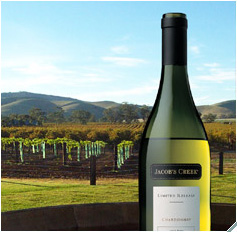| Wine: there's no harm in a bit of winespeak … but does it actually say anything?
Wine is the last genuinely exciting consumer product on the market--the sole remaining example of a product in which infinite variety in quality is correlated with total arbitrariness in price.
Hence serious papers have a column such as this one, devoted to discussing, analysing and recommending wine, while suppliers, from the ancient shippers to the supermarket chains, vie with each other to provide the customer with elaborate tasting notes--foretastes of aftertastes, so to speak--which bear no relation to conventional advertisements for beer and spirits, as they focus exclusively on the product and ignore the self-image of the consumer. The result is winespeak, the strange artificial language that purports to reduce flavours to their components, and which packages every bottle in a fragrant envelope of metaphors.
[ILLUSTRATION OMITTED]
 There is no harm in winespeak, used in moderation. But there is a real question as to whether it says anything. The question is neither factual nor stylistic, but philosophical, and touches on the very nature of wine as a product and a way of life. From Plato to Hegel, philosophers have distinguished the senses of taste and smell, which provide us with sensations, from those of sight and hearing, which provide us with representations of the world. When I hear your words, I hear sounds, but I also hear what you mean; when I look at you I see shapes and colours, but I also see you, your expression and your physical presence. Smells and tastes are not like that: they do not come organised, so to speak, by the thoughts that they suggest. If they convey anything, it is by association rather than content--and the associations can go on for ever. Hence tastes are both less informative and more evocative than looks, which is why it was the taste of the madeleine, not the sight of it, that set Proust on his train of recollection. There is no harm in winespeak, used in moderation. But there is a real question as to whether it says anything. The question is neither factual nor stylistic, but philosophical, and touches on the very nature of wine as a product and a way of life. From Plato to Hegel, philosophers have distinguished the senses of taste and smell, which provide us with sensations, from those of sight and hearing, which provide us with representations of the world. When I hear your words, I hear sounds, but I also hear what you mean; when I look at you I see shapes and colours, but I also see you, your expression and your physical presence. Smells and tastes are not like that: they do not come organised, so to speak, by the thoughts that they suggest. If they convey anything, it is by association rather than content--and the associations can go on for ever. Hence tastes are both less informative and more evocative than looks, which is why it was the taste of the madeleine, not the sight of it, that set Proust on his train of recollection.
This does not mean that the pleasure of taste is a merely sensory pleasure, like that of sunlight on the skin. We rational beings do not merely taste our drink: we savour it, and that means opening our minds and hearts to reflection in a way that lies entirely beyond the mental repertoire of Sam the horse, even if he enjoys his wine every bit as much as I do. On the other hand, savouring a wine is nothing like savouring a picture, a poem or a symphony. It is an act of consumption that destroys its object, and which soothes and illuminates through associated thoughts and emotions, not through any meaning contained in the experience itself.
That is why I try to avoid winespeak. For it emphasises the aspect of wine that appeals to Sam the horse, namely flavour, and not the aspect that appeals to his boss--namely history, culture and the long, fertile drama of the soil. |

